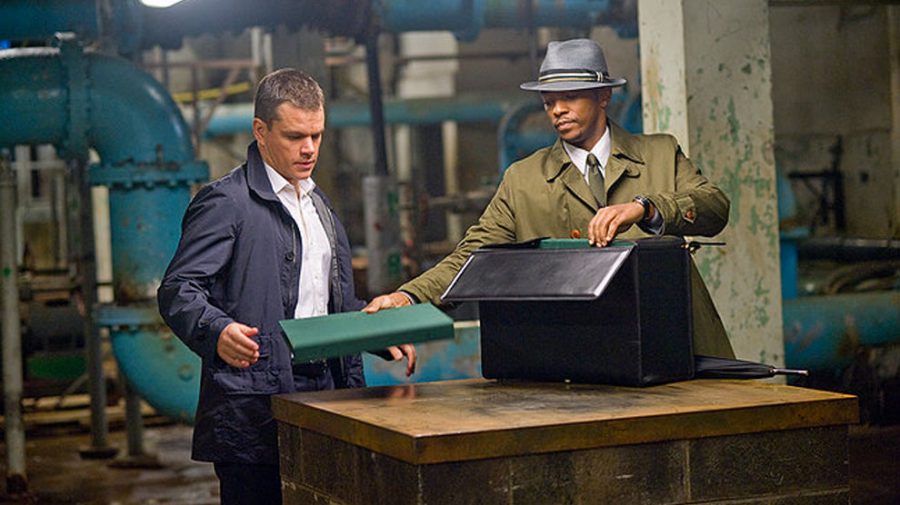“So now I’m goin’ back again,
I got to get to her somehow […]
We always did feel the same,
We just saw it from a different point of view,
Tangled up in blue.”
– Bob Dylan, “Tangled Up in Blue”
“The Adjustment Bureau” is like one giant visual representation of Dylan’s song; that is, it’s art done right.
We are treated with a wholly poignant film with just the right amount of intellectual teasings. Instead of bogging us down with the details of just how the Bureau works, its members, for the most part, don’t take themselves too seriously.
Many have criticized this, insisting that given the film’s short running time, writer/director George Nolfi should have provided more explanation of the story’s sci-fi threads.
I think this is the beauty of the film, though.
We are treated to an easily digestible story dealing with the various implications of both sides of the free will issue. However, we are spared the pseudo-philosophy that bogs down films like “Dark City.”
It’s not that these issues aren’t interesting. But they can get in the way of our characters, which ultimately move the story along. “The Adjustment Bureau” thankfully does not fall victim to this.
Matt Damon stars as David Norris, a rising politician running for a seat in the United States Senate. When he loses an early lead, he meets a mysterious woman (Emily Blunt) while rehearsing his concession speech in the hotel bathroom. Their chemistry is immediate, and after sharing a kiss, David is inspired and delivers a very honest, well-received speech.
One morning, an agent of the Bureau fails to make an “adjustment” on David. Rather than David spilling his coffee and being late for work, David gets a glimpse of the future the Bureau does not want him to have. He meets the mysterious woman again by chance. She introduces herself as Elise and gives David her phone number.
Thus begins the scramble of the Bureau to get things back on track. They tell David he must never see Elise again. When he ignores their requests, they start taking drastic measures to ensure that David and Elise remain apart.
Of course, as David struggles to be with her, Elise feels betrayed by David’s lack of stability in their relationship. One of the Bureau’s agents finally convinces David to move on from Elise, and eleven months later David is running for Senate and Elise is engaged to another.
David finally decides he cannot have a life without her. In the face of overwhelming odds, he decides to forsake his predetermined path and risk everything to be with her.
This sounds like the kind of high-stakes storytelling that produces very moving results, but only if the leads are believable. Damon and Blunt hit a home run with their performances. Nothing ever feels forced, which is important for whatever payoff we get in the end.
I applaud the film’s commitment to telling its story with the tone it does. Some may view it as over-the-top, but the film grounds itself in its emotional core. This is vital.
Even if the film avoided the criticisms of its sci-fi scenario, we would be faced with another serious charge: so what? Because the film places its characters and their story first, we know why it all matters.
“The Adjustment Bureau” is based on a short story by Philip K. Dick (“Total Recall,” “Minority Report” and “Blade Runner”), yet it is a film that remains more hopeful than these others. Instead of getting caught up in the trappings of various philosophical conundrums, the film gets tangled in its most human aspect: love. We can’t help but get ourselves tangled up as well.







